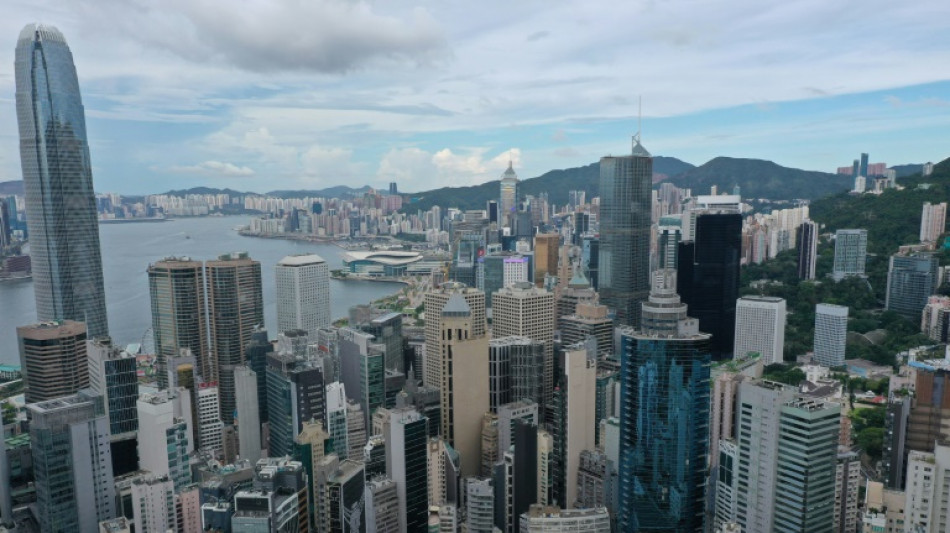

Australia 'denied access' to citizen detained in Hong Kong
Australia has for the last year been denied access to a citizen arrested in Hong Kong, diplomats revealed Tuesday, the latest case to be prosecuted under the city's far-reaching national security law.
Canberra officials said they were notified of the individual's arrest in January 2021, but "have been denied consular access despite multiple attempts". They did not name the person.
"The individual is deemed to be a Chinese citizen under China's citizenship laws, which do not recognise dual nationality," a spokesperson for Australia's department of foreign affairs explained.
Hong Kong, once regarded as a bastion of free speech within authoritarian China, has been transformed by a 2020 law that Beijing imposed to neuter dissent in the wake of huge and often violent democracy protests.
More than 160 people have been arrested under the law, including activists and journalists from pro-democracy news outlets.
Often denied bail, many suspects have been detained for long periods before trial.
They include several dual nationals, most notably mogul Jimmy Lai, a British-Chinese dual citizen and owner of the now-shuttered pro-democracy Apple Daily newspaper.
Lai has been charged over his alleged role in Tiananmen vigils, annual events commemorating the bloody crackdown on Chinese students calling for reform in Beijing.
Like Australia, Britain, Canada and the United States have in the past expressed concerns about being denied access to their imprisoned citizens who hold dual nationality.
A key aspect of the security law is that instead of the usual trial by jury, national security cases are decided by hand-picked judges.
Australia's foreign affairs department said officials had been able to attend court hearings and were "in regular contact with the individual's lawyers".
"Australia and many other countries have expressed concern about the erosion of basic freedoms and autonomy in Hong Kong and have called on Hong Kong and Chinese authorities to abide by their human rights obligations," the department said.
U.Kremev--LiLuX



